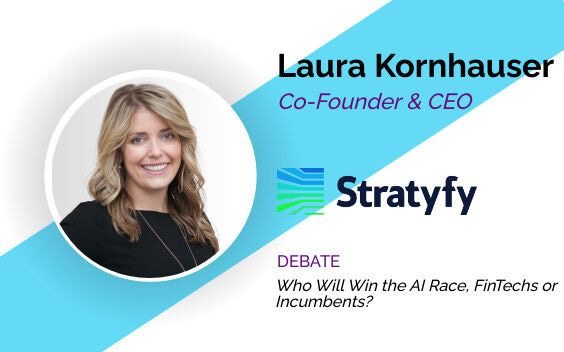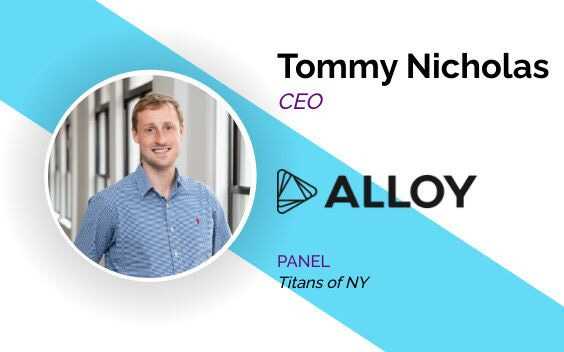ESG: Unmasking the Illusion of Caring
Empire Startups Contributor Amy Nauiokas suggests a call for genuine action amidst the noise of self-interest.
Hi there,
Over the last several years, corporate proclamations to do “what’s right” have been as popular as gym sign ups on the 1st of January. Companies are itching to reach the highest ends to prove their worth as citizens, especially at a time when consumers can quickly Google – and judge – their C-Suite in mere seconds.
It only takes a passive search to turn up thousands of ESG reference points, as social media platforms became the go-to calling card for doing the right thing - or at least saying you are.
Let’s face it - virtue signaling was the trend from 2020-2023.
But like all trends, the tides have begun to turn.
As leaders and their companies turn their attention to the very real challenge of profitability - once again in favor - it’s important that we don’t forget the work that still needs to be done.
When doing the right thing falls from favor every few quarters, we cannot let ourselves off the hook for the very real and very hard tasks. As we watch major companies pull back from commitments or simply disappear their efforts, we must continue to be vigilant, holding one another accountable and pushing one another to do more. As we reflect on understanding how we got here, we need to recommit to where we go now and what future efforts of corporate social responsibility might entail.
Good Intentions?
The turn of the 21st century brought with it a mass proliferation of new ideas and efficient ways of doing things ushered in by the digitization of our global economy. As capitalism and companies grew to slowly replace the power and influence of the nation-state, so too grew the open-ended promise of making the world better through digitization. As leaders began to call for more efforts of responsible governance and social media platforms grew, enabling campaigns for missions well beyond the bottom line, a need to codify these efforts emerged.
Enter ESG, the neatly packed acronym for what would become a wildly confused space. ESG is believed to have been first referred to in the 2006 publication of the UN’s Principles for Responsible Investment, with an ambitious goal: To mobilize the world’s largest investors to allocate capital to solve the world’s most pressing sustainability challenges. Who wouldn’t be on board?
As ESG proliferated, however, it became concerningly evident that there was little in the way of qualifiers, universal evaluation metrics, or external assessment. There was a sense of urgency and expectations, but no sense of standard. These expectations came without clarity on what was actually being measured and, if it actually made a difference. And an entire new industry emerged to capitalize on the confusion.
Reading Between the Lines
It is clear to many of us working for impact, that ESG in its original concept and formation was largely dead on arrival. A novel concept that almost instantaneously became its own side-show. Departments and teams formed to manage ESG functions separate and apart from the real strategy of the company, sometimes as an after-thought or even in response to wrong-doing. It was limited and contained in its ability to drive any sort of meaningful change. ESG itself was like a box: something that companies, investors and allocators do for the sake of checking it off, and easily packed up and pushed off to the side when it’s no longer en vogue.
Was or is ESG bad for society? No, but it’s not necessarily doing that much good yet.
Done right, I know that an ESG framework helps companies, investors and allocators ‘do no harm’. If companies comprise a clear set of guidelines and criteria for focusing efforts on implementing ESG practices into business units, portfolio companies and fund structures. And, it focuses employees and leaders engaged on the ESG conversation on goals.
But it’s not enough. True systems change must be defined at the heart of a firm’s entire business and true impact investing must be defined at the heart of an investor’s thesis, or else, it simply won’t work.
Since 2020, more than one trillion dollars has flowed into funds in support of ESG goals (Morningstar, September 2023). Yet, the positive impact of how that money was invested and what the outcomes have been remains unclear.
Let’s take the specific example of ESG money allocated to female founders or female fund managers in VC. There is no singular source of data showing the amount of capital announced as available to support the category, nor the quantifiable impact that the capital has had. And, even the data that we do have presents a concerning picture. For example, US startups with all-female founding teams raised around $3.1 billion in 2023 - just 1.8% of all US venture capital. Considerable industry-wide work is required to encourage ESG-focused work across the asset management ecosystem, but that work needs to be adequately managed and measured to adequately facilitate tangible progress.
Moving Forward, Actionably
For allocators, impact investing should be about taking accountability for doing what they say they are doing - and proving it. How about a public audit for anyone who in the last 5 years said they were deploying capital with a diverse lens for example? It’s one thing to announce a program, it’s another completely to show where and how that money was deployed - both to hold allocators accountable and to highlight how diverse deployment of capital can be a game changer.
Thankfully, the number of investors willing to hold themselves accountable and to make impact-focused issues a core element of their company and investment practices continues to grow. But there is still a significant amount of work to be done. One thing is clear: startups, incumbents, venture capitalists, limited partners, governments and regulators need to do more to expedite impact-driven systems change - going further than simply doing no harm.
One thing is for certain, social responsibility is in fact the responsibility of society.
–
Amy Nauiokas, Founder & CEO of Anthemis Group, Empire Startups Contributor
Empire Startups Contributors are a community of experts providing unique perspectives and insights on the latest in FinTech. Our model is is merit-based and does not offer monetary compensation.
🎪 2024 Empire FinTech Conference Speaker Sneak Peek
We're excited to start announcing our speaker lineup for the 2024 Empire FinTech Conference. Check them out below – and make sure to snag your ticket before our early bird sale ends next week. 👇
And in case you missed it, get a first look at why you can’t miss *the* FinTech event on the East Coast:
🎟 Featured FinTech Events
NEW YORK
SAN FRANCISCO
OTHER CITIES
📆 DEADLINES
Applications are open for a chance to pitch at our 2024 Financial Wellness Pitch Day, in partnership with the AgeTech Collaborative™ from AARP.
The winning pitch not only receives $10,000 but gets the opportunity to pitch on the Empire FinTech stage later that week.
If your email client clips some of this newsletter, click below to see the rest.🗞🎧 The latest news in FinTech.
Reads
🦄 Welcome back to the Unicorn Club, 10 Years Later | TechCrunch
A brief look at our takeaways about the 532 companies in the 2023 Unicorn Club.
🏛 FedNow draws some banks, as others lag | PaymentsDive
The Federal Reserve is building up bank participation in FedNow, but some big financial institutions remain on the sidelines.
💳 Affluent Consumers Most Likely to Use Store Card Installment Plans | PYMNTS
The high level of adoption among affluent consumers could well be sticky, as 78% of consumers who have used store card installment plans have been very satisfied with the experience.
📉 Latin American Startup Funding Fell Again In 2023 | Crunchbase News
Though dramatic, the declines this past year don’t appear closely tied to country-specific economic or political factors.
🧾 Synchrony to buy Ally Financial's point-of-sale financing business | Reuters
The portfolio includes relationships with nearly 2,500 merchant locations and more than 450,000 active borrowers in home improvement services and healthcare.
Listens
🤝 How to build trust in financial services | Fintech Insider by 11:FS
In a world that now looks so very different from 2008, we want to tackle the tricky matter of trust head on. How do financial services build trust? How do they keep it?
⮐ Return to Reality? | Breaking Banks
We seem to be working through hype cycles faster and faster, but what’s on the other side is rarely a return to the status quo. In this episode, Simon Taylor, Fintech Brainfood, Jim Marous, The Financial Brand and Theo Lau, Unconventional Ventures join hosts Brett King and JP Nicols to share insights and debate what upward and downward forces will most impact fintech and banking in the next 12 months, and what that new reality looks like.
🚀 Featured FinTech Funding
SEED
Baus Capital, $250K (Blockchain/Crypto, Miami)
SERIES A
PredictAP, $8M (Payments/Billing , Boston)
SERIES B
Briq, $8M (Business Intelligence , Santa Barbara)
Panacea Financial, $24.5M (Digital Banking , Little Rock)
Kashable, $25.6M (Lending, New York)
💼 Featured FinTech Jobs
New York
Senior Manager, Commercial Banking Partners, DailyPay
Implementation Manager, Alpha Sense
Payment Partnerships Manager, Forter
Head of Product Support, Wingspan
Remote
VP, Enterprise, Skipify
VP, Product Engineering, Flutterwave
Onboarding & Implementation Manager, Papaya Global
Global Sanctions, ABC & CTF Compliance Monitoring & Testing Analyst, Binance
San Francisco
Director, Marketing Analytics, Chime
Director, Member Business Lead, SoFi
Investor Relations Senior Manager, Ripple
FP&A Manager, FalconX


















